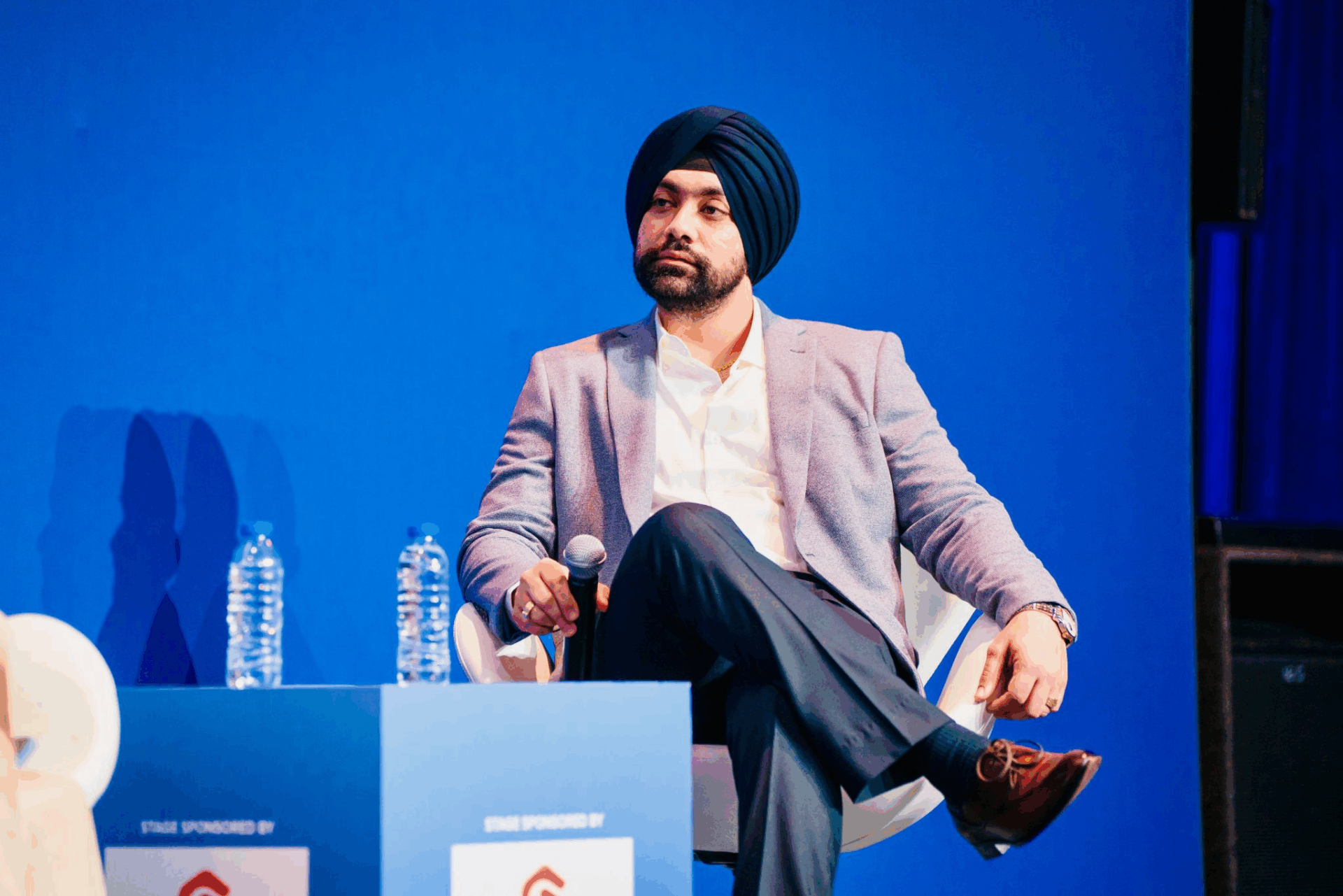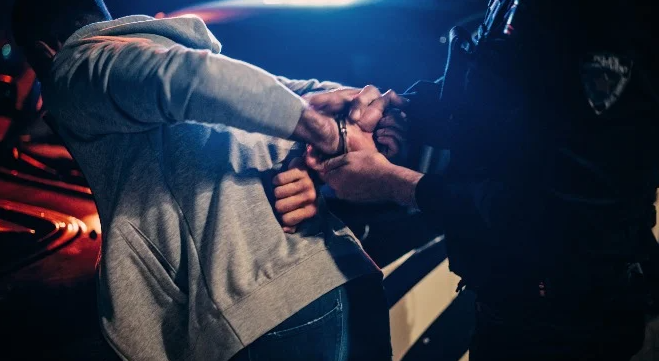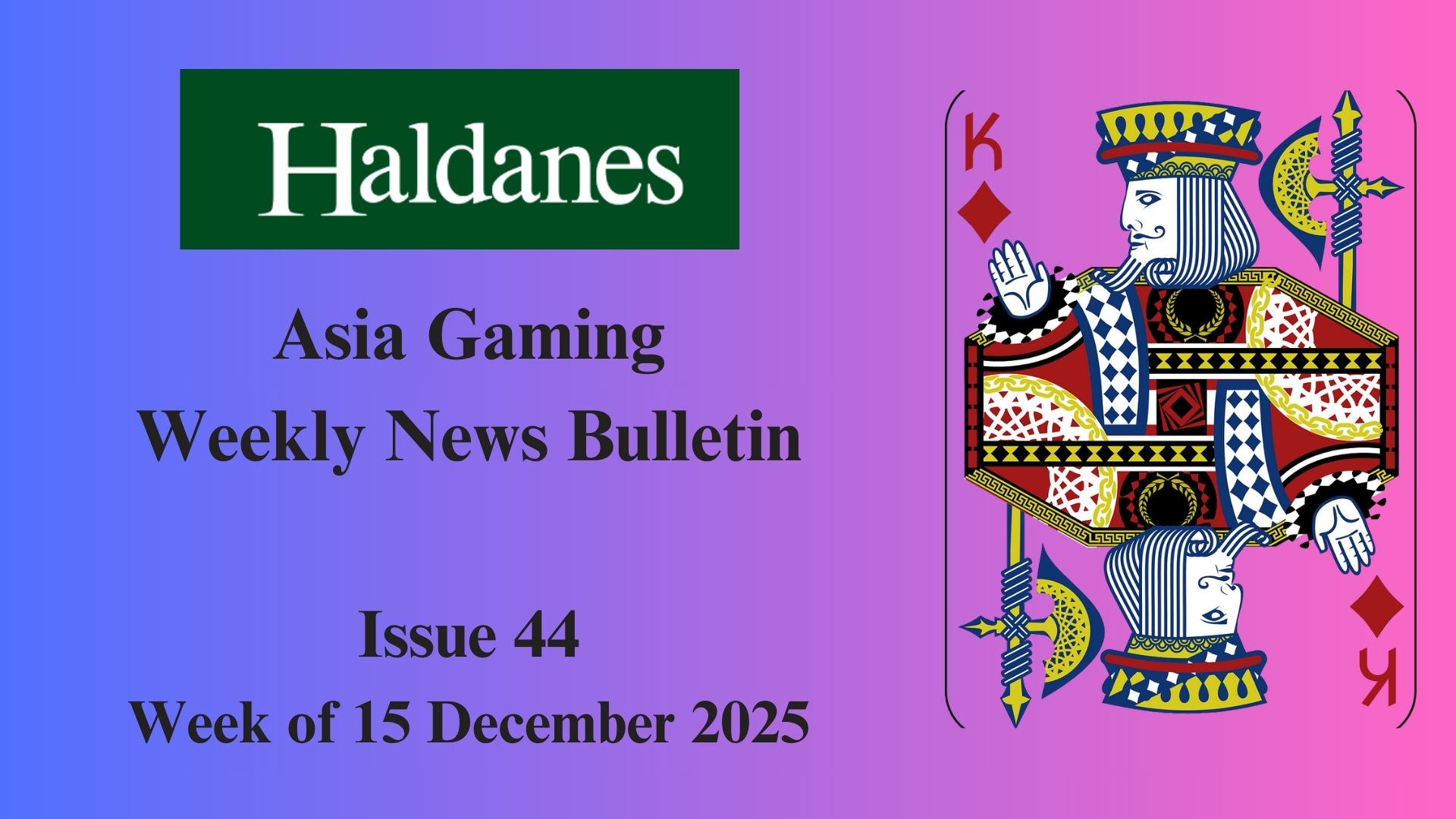Asia Gaming Weekly News Bulletin – ISSUE 35 Week of 6 October 2025
(1) India’s online gambling ban ‘derails high-potential sector’, industry expert warns
India’s blanket ban on online gambling has delivered a heavy blow to one of the country’s fastest-growing digital sectors, wiping out jobs, stalling sponsorships, and sending shockwaves across allied industries.
(2) Kazakhstan tests biometric ID to strengthen AML checks and improve transparency in regulated gambling
Kazakhstan is testing whether facial recognition can make gambling safer, fairer, and more transparent. The goal is to create a stronger barrier against fraud and improve player protection as part of a wider national push for digital governance.
(3) FBI & Meta aid Singapore police in major online betting bust
Seven suspects arrested in coordinated raids for running illicit gambling operations.
(4) Yolo Group Subsidiaries Gain Vendor Licenses to Operate in UAE Gaming Market
Two subsidiaries of Yolo Group have secured essential vendor licenses from the United Arab Emirates’ gaming regulator, the General Commercial Gaming Regulatory Authority (GCGRA). These licenses will enable the companies to provide B2B gaming content in the UAE’s emerging regulated online gaming market.
(1) Mocha Kuong Fat in Macau closes, but operator hopes to maintain three more

(Photo Credit: Asia Gaming Brief/Japneet Singh Sethi at SBC Summit Lisbon 2025)
India’s blanket ban on online gambling has severely impacted one of the country’s fastest-growing digital sectors, resulting in an estimated loss of 200,000 jobs and stalling sponsorships, according to iGaming strategist Japneet Singh Sethi. The clampdown has disrupted not only gaming firms but also allied industries, including fintech, advertising, affiliate marketing, cloud services, and events, risking derailment of a high-potential sector that contributed billions to the economy. The ban has created uncertainty for major platforms like Dream11, which sponsors India’s national cricket team, forcing brands to pivot to global markets for visibility.
Sethi criticized the government’s approach as misguided, arguing that demand for online gaming would simply move underground rather than disappear. He advocated for a controlled regulatory model with robust KYC checks and deposit caps, similar to the UK or Malta frameworks, to ensure player safety and market stability. He emphasized that India missed an opportunity to establish a Digital Gaming Authority for clear taxation, licensing, and audits, suggesting that a tiered or state-wise pilot regulation would have been more sustainable than an outright ban.
Despite the challenges, Sethi highlighted potential for innovation in non-monetized formats, such as freemium models, subscription-based services, social casinos, and prediction games with virtual currencies—citing Zynga Poker as a successful example. However, he noted that esports and educational games, promoted by the government as alternatives, cannot fully replace the real-money gaming sector’s economic impact. The ban, enacted through the Promotion and Regulation of Online Gaming Bill, aims to curb financial distress and fraud but faces industry skepticism about its long-term viability and India’s ability to harness its digital gaming potential.
News Source: https://agbrief.com/intel/deep-dive/06/10/2025/indias-online-gambling-ban-derails-high-potential-sector-industry-expert-warns/
(2) Kazakhstan tests biometric ID to strengthen AML checks and improve transparency in regulated gambling

(Photo Credit: IGamingToday)
Kazakhstan’s Ministry of Tourism and Sports has partnered with tech firm Biometric. Vision to launch a facial recognition pilot program aimed at enhancing safety and transparency in gambling. Unveiled at the Digital Bridge international forum, the initiative uses AI-driven biometric verification to authenticate players in real time, preventing access by underage or self-excluded individuals and detecting fraudulent behavior. This effort aligns with the national “Digital Kazakhstan” strategy, focusing on modernizing oversight across online and land-based gambling markets through digital governance.
The pilot represents a broader push to integrate innovation with social responsibility, as emphasized by ministry representative Baurzhan Rapikov, who described it as a “new stage in the digitalisation of the social sphere.” Biometric. Vision’s CEO, Alibek Narimbaev, highlighted its potential to serve society by improving transparency and reducing risks, building on the company’s existing work with Kazakhstan’s National Bank for financial ID verification. The technology also extends to crypto regulation through a partnership with Bybit Kazakhstan, reinforcing anti-money laundering (AML) and know-your-customer (KYC) safeguards.
If successful, the pilot could set a precedent for biometric verification mandates across licensed gambling operators, requiring new data integrations and compliance processes. This proactive, preventive approach shifts regulators from post-incident enforcement to real-time monitoring, potentially influencing emerging markets globally. Kazakhstan positions itself as a regional test bed for tech-driven governance, balancing innovation with ethical compliance to foster responsible growth in gambling, tourism, and financial services.
News Source: https://www.igamingtoday.com/kazakhstan-tests-biometric-id-to-strengthen-aml-checks-and-improve-transparency-in-regulated-gambling/
(3) FBI & Meta aid Singapore police in major online betting bust

(Photo Credit: gamblinginsider)
Singapore police, with support from the U.S. FBI and Meta, dismantled an illegal betting syndicate in a cross-border enforcement operation, arresting seven men during simultaneous raids in Bukit Batok, Hougang, and Pasir Ris. Authorities seized approximately SG$500,000 in assets, including cash, luxury watches, mobile phones, SIM cards, and 15 bank accounts, highlighting the syndicate’s sophisticated financial infrastructure.
The syndicate lured victims to an offshore gambling website that initially paid out winnings to build trust, then required additional wagering or credit purchases before allowing further withdrawals—a scheme that collectively cost victims over SG$175,000. Four Singaporean suspects were charged: Ong Wei Jie (28) and Samuel Chiam (39) for handling illegal casino and football bets, and Song Yong Sheng (52) and Shuek Jin Yong (35) for acting as money-transfer runners and recruiting site developers.
If convicted, each defendant faces up to five years imprisonment and fines of SG$200,000, under Singapore’s strict ban on unlicensed online gambling. Senior Assistant Commissioner Yeo Yee Chuan emphasized that police will continue “tough enforcement action” against such operations “wherever they choose to operate,” signaling zero tolerance for cross-border illegal betting networks.
News Source: https://www.gamblinginsider.com/news/31489/fbi-meta-aid-singapore-police-in-major-online-betting-bust
(4) Yolo Group Subsidiaries Gain Vendor Licenses to Operate in UAE Gaming Market

(Photo Credit: Yolo Group)
Yolo Group’s subsidiaries Hub88 Holdings and Online Gaming Services (operating brands Live88 and Onetouch.io) have been awarded gaming licenses by the UAE’s General Commercial Gaming Regulatory Authority (GCGRA), marking a significant step in the group’s international expansion. This achievement places them alongside established global operators like Aristocrat, Novomatic, and IGT in the UAE’s tightly regulated gaming environment, which has rapidly developed since the 2022 announcement of Wynn Resorts’ $2 billion casino project and the pioneering licensing of The Game LLC (UAE Lottery operator) in late 2023.
A key highlight is Live88’s distinction as the UAE’s first licensed online live casino studio, signaling regulatory acceptance of digital gaming diversification beyond traditional land-based facilities. Yolo Group Founder Tim Heath framed the licenses as reflective of the company’s commitment to innovation and transparency, aligning with the UAE’s leadership in modern regulated gaming. The group’s tech-forward approach extends to cryptocurrency integration, evidenced by MiCA-compliant crypto payment solutions at its Estonia-based Bombay Club casino, underscoring its strategy to merge gaming with cutting-edge financial technology.
Yolo Group’s entry coincides with a wave of licensing approvals for global suppliers—including Scientific Games, Light & Wonder, and Pollard Banknote—affirming the UAE’s commitment to a competitive, streamlined gaming market. This licensing surge reflects government efforts to balance economic opportunity with international regulatory norms. For Yolo Group, the licenses position its subsidiaries to leverage technology and content in the growing Middle Eastern market, reinforcing its role in shaping the future of regulated gaming through trust, innovation, and transparency.
News Source: https://www.igamingtoday.com/yolo-group-subsidiaries-gain-vendor-licenses-to-operate-in-uae-gaming-market/


